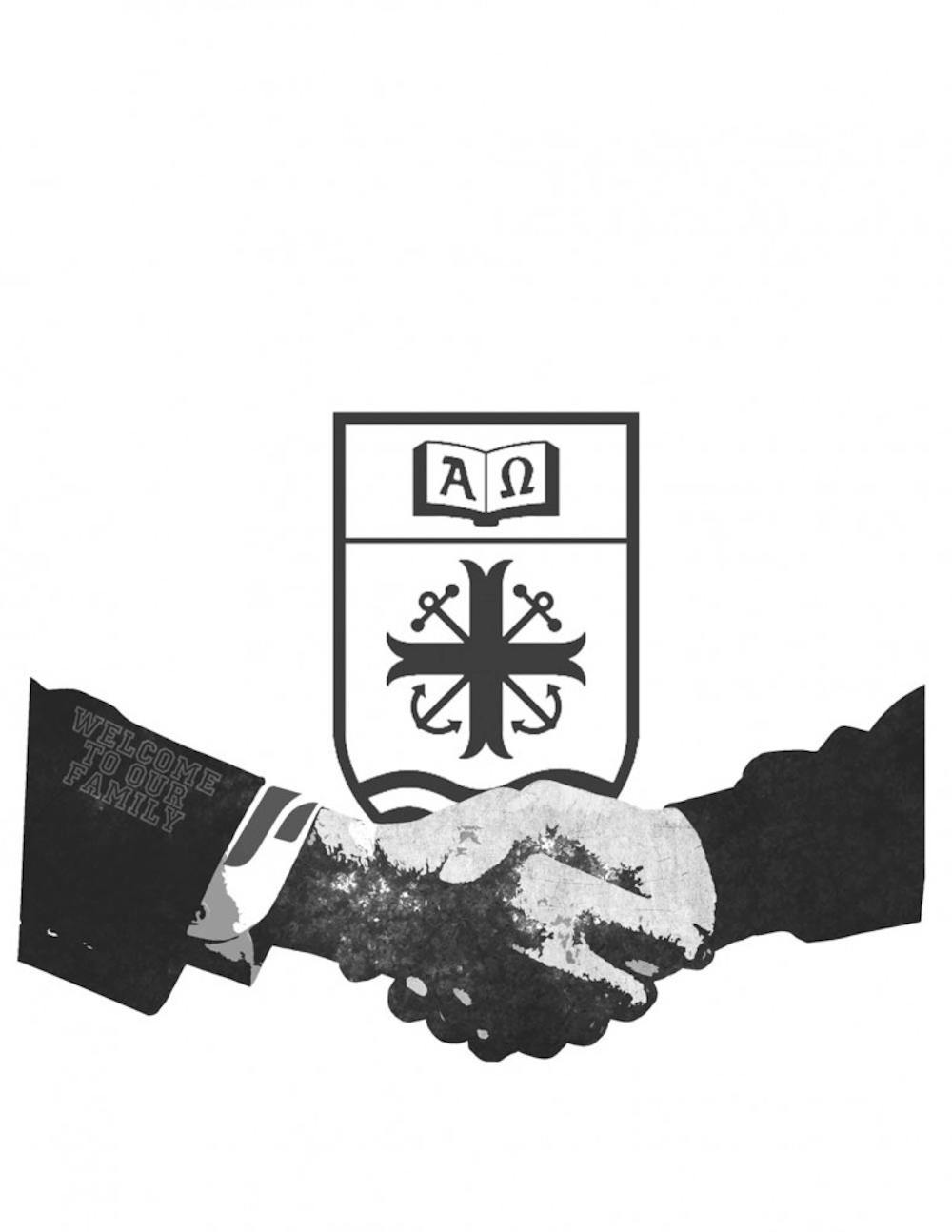How does UP select its faculty?
(Photo illustration by Alexander Domingo -- The Beacon)
By Will Lyons, Staff Writer -- lyons14@up.edu
With the retirement of Professor Louis Masson, the English department must hire someone to fill his shoes for the Fall 2011.
The exact details for hiring new full-time faculty members are different depending on the department, but the basics are the same, according to Fr. Stephen Rowan, the dean of the College of Arts and Sciences.
"The department in need of new staff advocates for a new position, and then creates a search committee consisting of faculty from within the department and one member of faculty from another department," Rowan said.
The next step is advertising the position.
"The search committee begins by publishing advertisements in academic journals," English department chair Herman Asarnow said. "We advertise in the MLA (Modern Language Association) journal and welcome good old-fashioned paper applications."
The search committee then selects 15 candidates to be interviewed at the annual MLA Conference from the pool of roughly 350 applications it generally receives. At the conference, the search committee narrows down the 15 candidates to three to be interviewed on campus.
Other departments go through similar steps to hire new full-time faculty.
"We're similar in that we go for the national advertisement and then the conference in individual disciplines like finance or accounting," Lisa Reed, associate dean of the Pamplin School of Business, said.
Students get involved in the hiring process when the candidates come to campus. Generally, the candidates do a mock class where the potential professor engages the students and faculty in a lecture and activities he or she would employ if hired.
Freshman English major Hannah Robinson attended prospective professor Yohei Igarashi's mock class.
"It's very much like a real class and allows the faculty and students to get a feel for the professor in a classroom setting," Robinson said.
After the mock class, students have input on the final selection of a candidate.
"We're all invited to write a response about the candidate's performance, which is kept on record for Dr. Asarnow," Robinson said. "The English faculty takes these responses seriously."
When the three candidates have gone through interviews with the entire English faculty, the department chair, Rowan and the Provost, Br. Donald Stabrowski C.S.C., the English faculty will rank the candidates and make a suggestion to Rowan and Stabrowski for the final hiring, which typically ends up being the candidate the department ranks first.
The rankings depend on the academic background and experience of the candidates as well as personality.
"(UP) is not like a big university where you can have one crank on faculty," Asarnow said. "We have candidates come in on the weekend so we all can get personal time with them. We go to dinner, have coffee and let them get to know Portland and our students."
"Both crafting a cover letter and the administrative work was stressful," English professor Molly Hiro said about the hiring process.
All the time on campus ended up having a positive impact on Hiro though.
"There was a culture of openness at UP that made me open up and be real while I was being hired," Hiro said.
Sometimes things fall through however, and Asarnow may have to start over from square one.
"About 10 percent of the time we have to do the hiring process over again," Asarnow said. Location and offers from other universities sometimes get in the way.
The department chairs will repeat the process until the prime candidate is found.
"You're our students and we're extremely invested in your success," Asarnow said. "We don't want just anybody teaching you."








